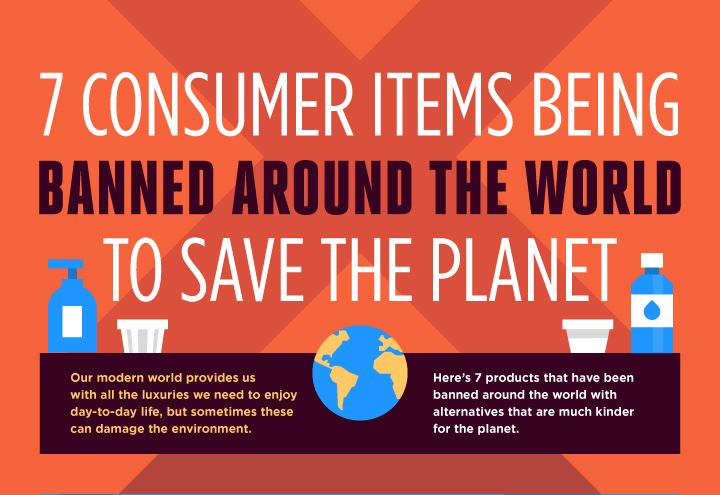Modern life can be chaotic, so it’s no wonder that science and commerce have teamed up to provide us with no-fuss products to help the day pass smoothly. Unfortunately, the environmental toll of some of these innovations can be enormous. It’s no wonder that eco-conscious governments and municipalities are using legislation to temper the damage we’re inflicting on our planet.
In Europe, banned items range from the mundane to the ridiculous: guidelines set by the EU have made high-powered (and underperforming) vacuum cleaners a thing of the past, while the French have outlawed the farming of domestic frog legs. Bangladesh was the first nation to ban plastic shopping bags, way back in 2002.
Americans are waking up to the damage and beginning to legislate against it. President Obama recently signed a ban on microbeads (the tiny plastic pellets used in many exfoliators and toothpastes) to prevent them getting washed away into rivers and lakes, where they can poison marine life. Areas such as Concord, Massachusetts and New York City have led the way in reducing other wastage, banning plastic water bottles and Styrofoam respectively.
Such legislation can also help to raise awareness of these issues. Check out our informative infographic below, which outlines seven such bans from around the world, detailing the damage they are preventing – and products we can use in place of those that are destroying the Earth.

Sources
Gilpin, L. (2015). Green tech: The most eco-friendly cities in the world. techrepublic.com
Gosden, E. (2014). EU rules against powerful vacuum cleaners ban ‘best’ models, Which? warns. telegraph.co.uk
Etzioni, A. (2012). The Crisis of American Consumerism. huffingtonpost.com
Drahl, C. (2016). What You Need To Know About Microbeads, The Banned Bath Product Ingredients. forbes.com


